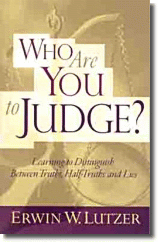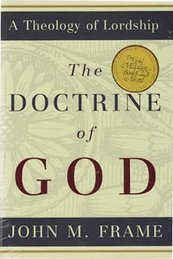“Since for unbelieving men religion seems to stand by opinion alone, they, in order not to believe anything foolishly or lightly, both wish and demand rational proof that Moses and the prophets spoke divinely. But I reply: the testimony of the Spirit is more excellent than all reason. For as God alone is a fit witness of himself in his Word, so also the Word will not find acceptance in men's hearts before it is sealed by the inward testimony of the Spirit. The same Spirit, therefore, who has spoken through the mouths of the prophets must penetrate into our hearts to persuade us that they faithfully proclaimed what had been divinely commanded ... " --John Calvin, Institutes of the Christian Religion 1.7.5.
Thomas Watson also said something similar:
The Scripture is both the breeder and feeder of grace. How is the convert born, but by `the word of truth'? (James 1:18). How doth he grow, but by `the sincere milk of the Word.'? (1 Peter 2:2)
When we had this view of the order of how we believe in mind, it is clear that different from Catholic beliefs, Calvin knew well that the Holy Scripture has its authority from God, not from the church. Rather, the church is itself grounded upon Scripture. Calvin said that, if the Scripture depends on the decision of the Church. then the result would be that:
The truth of God would thus be subjected to the will of man.
It is insulting to the Holy Spirit.
It establishes a tyranny in the Church.
It forms a mass of errors.
It subverts conscience.
It exposes our faith to the scoffs of the profane.
In explaining that the church is itself grounded upon Scripture, Calvin said:
Paul testifies that the Church is "built on the foundation of the apostles and prophets," (Eph. 2: 20.) [The apostles and prophets constituted the foundation of the church since it was through them that
God revealed and established the church. John R. W. Stott in, The Message of Ephesians, said "In practical terms this means that the church is built on the New Testament Scriptures."] If the doctrine of the apostles and prophets is the foundation of the Church, the former must have had its certainty before the latter began to exist. Nor is there any room for the cavil, that though the Church derives her first beginning from thence, it still remains doubtful what writings are to be attributed to the apostles and prophets, until her judgement is interposed. For if the Christian Church was founded at first on the writings of the prophets, and the preaching of the apostles, that doctrine, wheresoever it may be found, was certainly ascertained and sanctioned antecedently to the Church, since, but for this, the Church herself never could have existed. Nothings therefore can be more absurd than the fiction, that the power of judging Scripture is in the Church, and that on her nod its certainty depends. When the Church receives it, and gives it the stamp of her authority, she does not make that authentic which was otherwise doubtful or controverted but, acknowledging it as the truth of God, she, as in duty bounds shows her reverence by an unhesitating assent. As to the question, How shall we be persuaded that it came from God without recurring to a decree of the Church? it is just the same as if it were asked, How shall we learn to distinguish light from darkness, white from black, sweet from bitter? Scripture bears upon the face of it as clear evidence of its truth, as white and black do of their colour, sweet and bitter of their taste. --John Calvin, Institutes of the Christian Religion 1.7.2.
As to the question of "How shall we be persuaded that it came from God without recurring to a decree of the Church?", I think Calvin is saying that the Scripture bears its own authentication.
So, how does God enable us (this is not against our will) to believe in Him? Diagrammatically, I think a simple order would be this:God ---> God's Word (Scripture) via apostles and prophets [together with the inward testimony of the second person of the Trinity, the Holy Spirit]---> We believe ---> Formation/Beginning of a Church community
Rather than:
Apostles' and prophets' word (= God's Word [certainty??]) ---> We believe [on what basis?? No canon yet!!]
---> Formation/Beginning of the Church ---> Verify God's Word (Scripture)!!??
As I try to organise my thoughts (in the above diagram) as to how the Canon is formed, I found it very difficult to do so for the view that the Scripture has its authority from the church.
... ... just some random thoughts!



2 comments:
good random thoughts! if these were just random, i cannot imagine what it might be like if tey were non-random. :)
anyway, my 2 cents...i believe the foundation (and authority) of the Church rests very much on both the Spirit and the Word of God.
You might be interested to read about the three marks of a Church by Calvin. What am i saying, i am sure you aready knew that.
Shalom!
It looks like the scripture is the foundation of truth at least from Calvin's point of view. But Timothy has a different take - I Tim 3:15... the church is the pillar and foundation of the truth. (NIV)
Post a Comment